
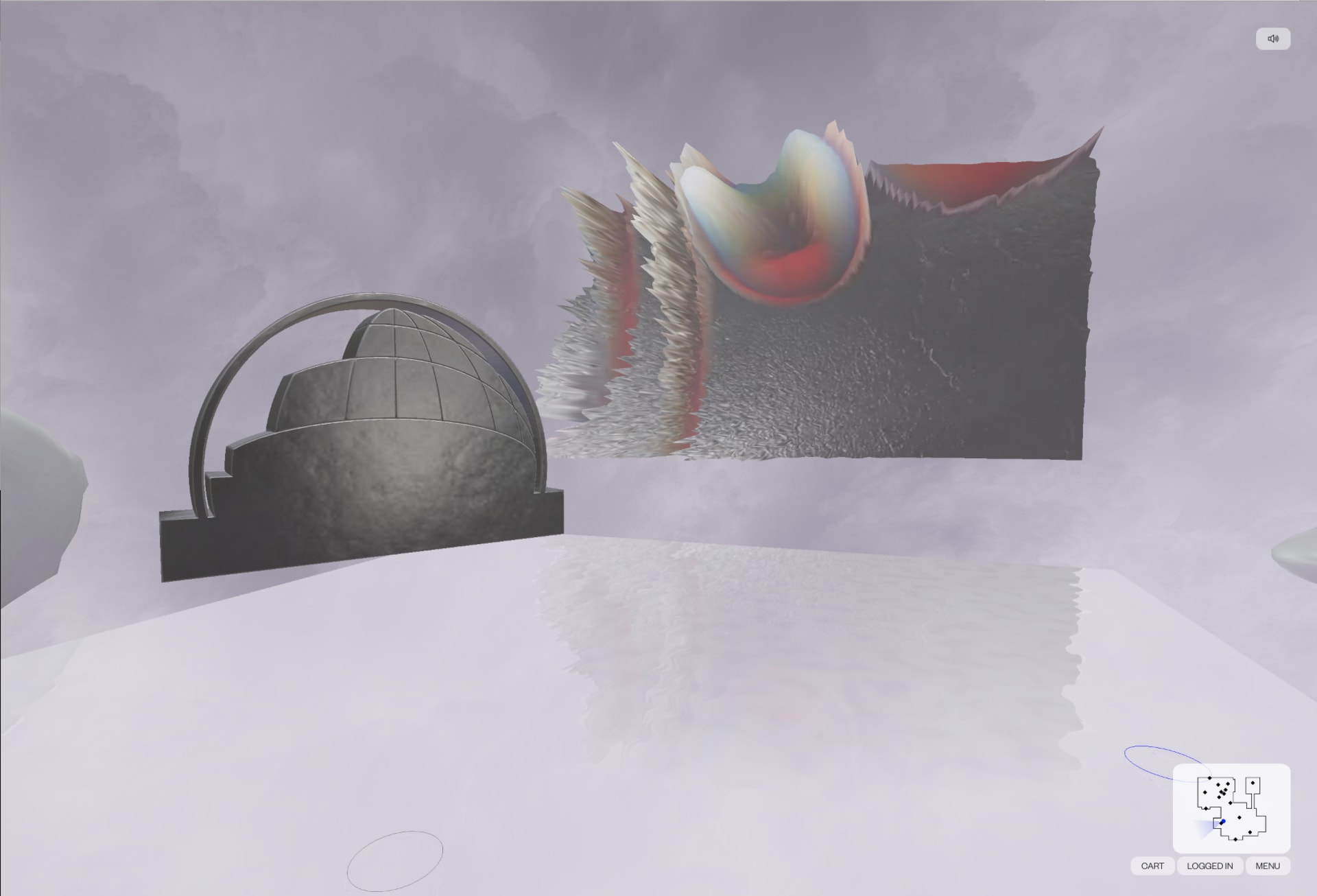
Reference Festival Sets the Bar for the Browser-Based Cultural Fest
The festival's inaugural edition featured a showcase of PAN affiliated artists, including Amnesia Scanner, Pan Daijing, and Anne Imhof.
Reference Festival wasn’t supposed to be online. But with the unfortunate extension of Germany’s lockdown at the beginning of the year came the opportunity for Reference Studios, the German communications agency based at the intersection of art, music, and fashion, to create something more unique than—if not as grandiose as—the large-scale, in-person event they’d originally planned.
This element will show content from various video platforms.
If you load this Content, you accept cookies from external Media.
Enter Reference Realities, an immersive, browser-based virtual space where visitors spent time between performers’ sets milling around a gallery-esque, vaporwave-indebted landscape. In my time in Reference Realities, I perused a number of purchasable goods floating in mid-air and spent time in the section dedicated to German magazine 032c, but the real action took place in an unassuming corner called The Planetarium, a space that elevated Reference to much more than the average quarantine live stream. Upon entering, The Planetarium’s platform felt like a more artful Twitch stream, where the main video frame rested atop an undulating ocean of some virtual black gooey substance and a string of giddy (and overwhelmingly supportive) comments flowed along the right side. On the first night of the festival, this was the fitting home of a collaborative showcase presented by Carhartt WIP—who we featured here—and German experimental label PAN.

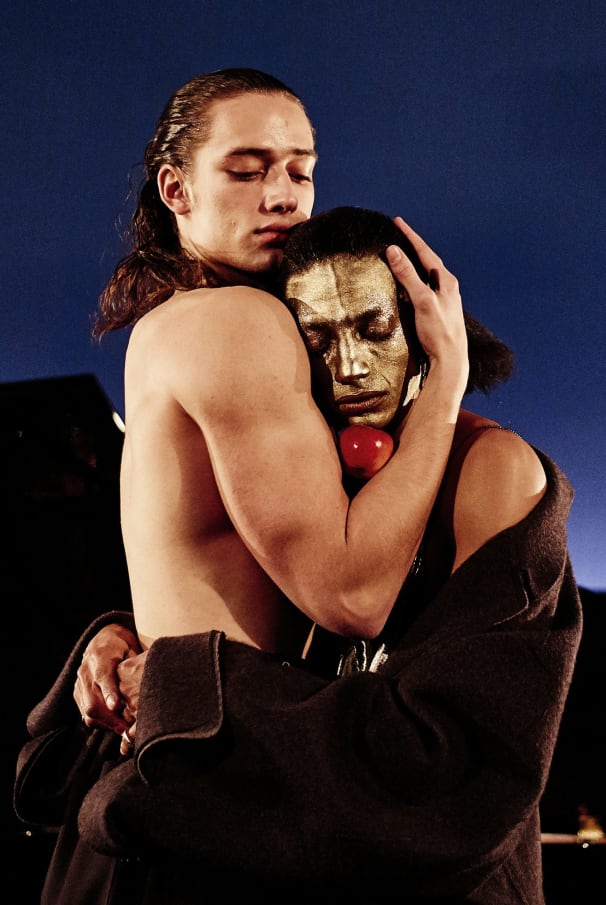
The night’s first performer, dancer, model, and choreographer MJ Harper, began their performance Act 1, alongside David Jainz, with a slowly-addressed series of musings about fear, control, and intimate relationships that quickly ratcheted up into near unintelligible speeds that felt like their brain was short circuiting. After this brief moment of anxious tension, the mood shifted into a more somber space, where Harper’s slow, soft movements and hushed spoken word conveyed fragility and vulnerability, while their only accompaniment, a live pianist, further amplified every emotive movement with a string of Romantic period compositions. After a penultimate fade-to-black, the performance ended with the loving embrace of a pre-recorded, string led love song.
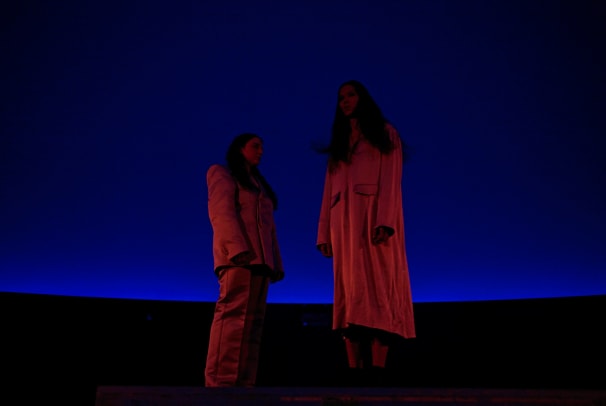
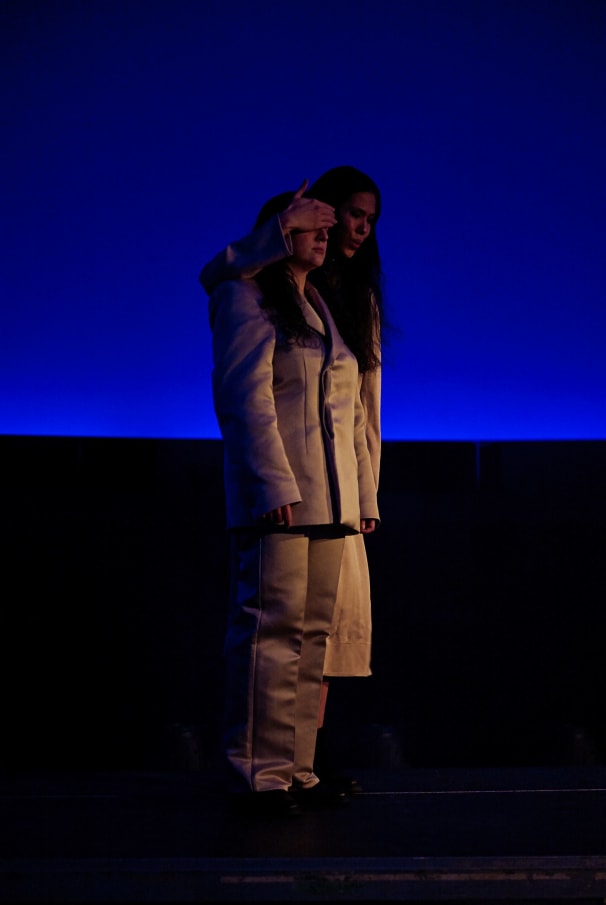
After, Pan Daijing delivered a strikingly uncharacteristic performance. For an artist whose visceral live shows have tended to center herself, accompanied by jarring visual imagery or bathed in red light, Daijing’s video was comparably lighter in tone. Daijing was absent throughout the performance, hidden in the background somewhere out of the camera’s view, which was focused on two singers, whose droning and cooing vocals floated in an out of harmony and dissonance with each other, for an experience that momentarily oscillated calm and unnerving energy.
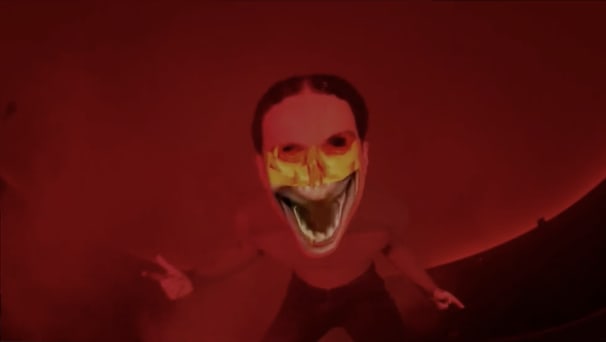
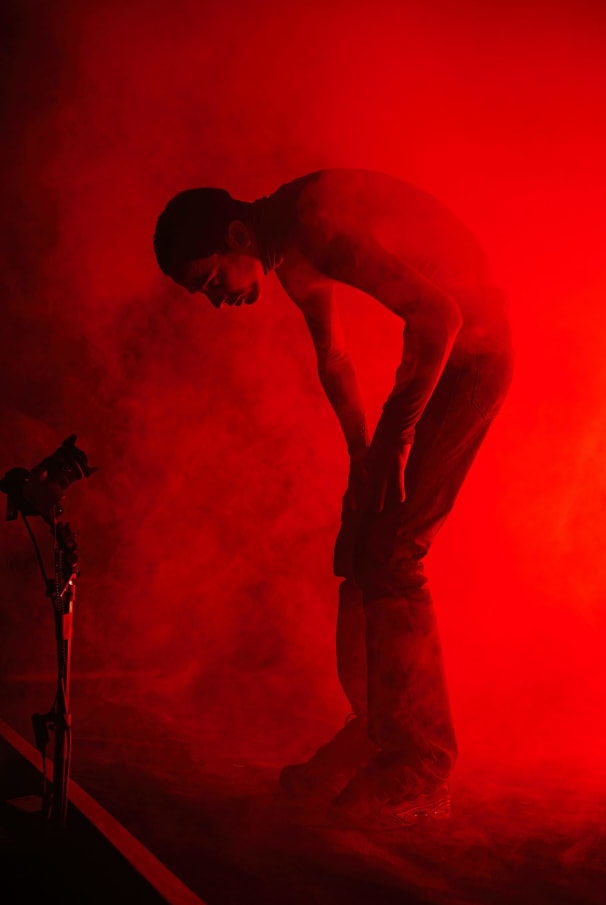
In Amnesia Scanner’s performance, however, the energy shifted from capital-E Experimental to something more tongue in cheek and raunchy—more in line with the latest combination of “post’s” or “nü’s” they’ve been deciding to tag themselves as recently. The music was rough and direct, moving between tracks from last year’s Tearless and unreleased compositions of relentless clanging beats and guitar solos. Created in collaboration with visual artist Freeka Tet, their performance was centered around one solitary figure in a body suit, filmed in a way that distorted their body proportions to uncomfortable extremes. To add an extra layer of hyperreality, the performer’s face would shift from being (at least conceivably) their own to a series of cartoonish deepfakes. (If you’re curious what I mean, you can try the face filter for yourself on Freeka Tet’s instagram.) As the music became more aggressive, so did the video, stretching the performer, glitching and lagging like it was pulling apart at the seams. Overall, it played out like some sort of demented, computerized version of a rap music video.
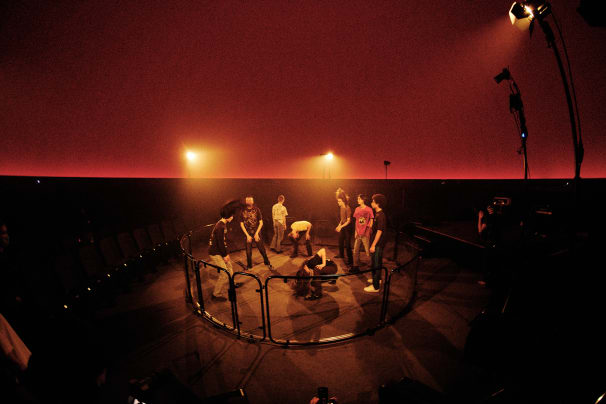
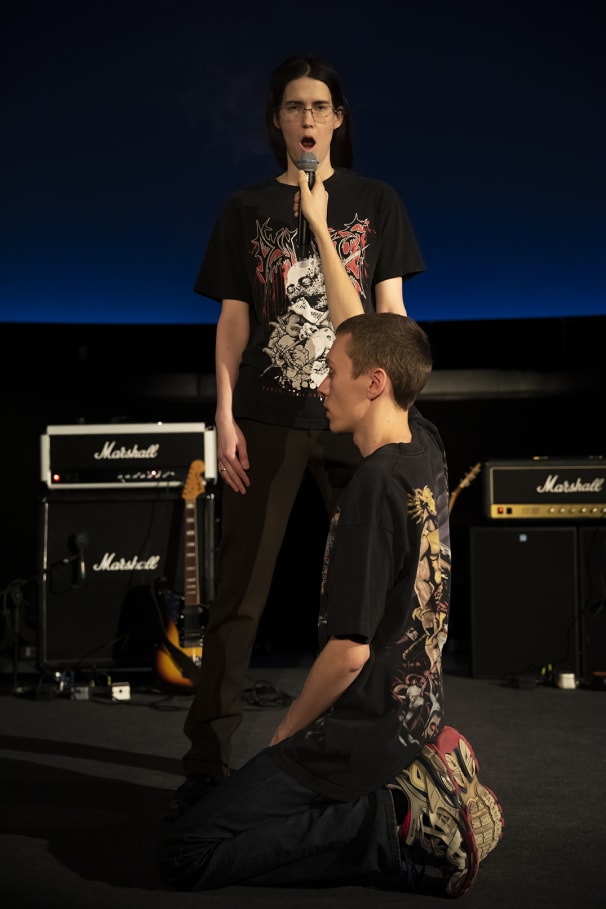
Amnesia Scanner’s show ended with a sludgy metal dirge and a cloud of vapor, as if to foreshadow German and American artists Anne Imhof and Eliza Douglas’ set of doomsday grunge ballads. For the most part, Imhof and Douglas stared blankly, delivering lyrics with deadpan certainty over guitar-driven tracks that ranged from stripped post punk to “transcendental” black metal—only interrupted by the occasional sample of a revving motorcycle. There are moments of elation, but the dominant mood was of sonic depression, echoed physically in the anxious and nihilistic behavior of the group of performers that accompanied the artists. Clad in faded skull-printed and metal band shirts, they trudged through the stage in near-militaristic formation before disbanding, laying on the ground, and frequently blowing fat clouds of vapor into the artist’s faces. Toward the end of the show, the performance’s harsh realism morphed into surreal fantasy, as the ensemble of performers flapped their arms like wings and Douglas headbanged her nearly waist-length hair, illuminated by bleak rotating lights. It was definitely goth, and it was definitely beautiful.
While each set was completely different from the last, one aspect that aligned them all was their impact-to-simplicity ratio. Especially in the case of Anne Imhof and Eliza Douglas and Amnesia Scanner, whose recent performances have involved entire ensembles, effects, and props, it was refreshing to see their performances reformatted to fit inside of our home computer screens, keeping the experience constantly interesting but never visually overwhelming. Each riffed on a type of performative minimalism, making them all the more impactful. Through this showcase of some of experimental music’s brightest, folded into the online universe of Reference Realities, Reference Studios provided an enthralling take on the online festival that will be hard to best, even if they can do it in person next time.
Zach Tippitt is an editor for Electronic Beats. Find him on Instagram.
Published January 29, 2021.












Follow @electronicbeats